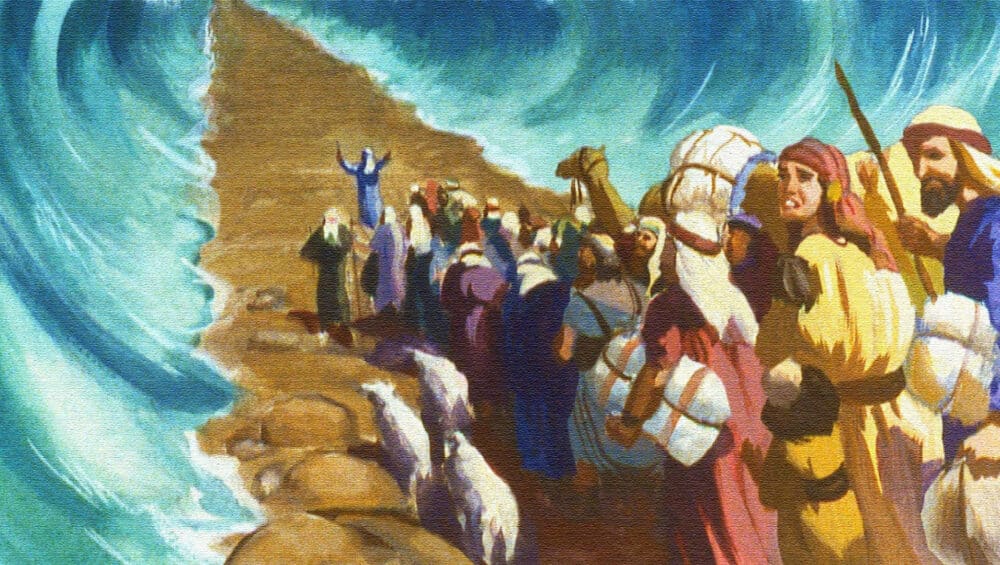Jeremy Park, Bible-Scenes.com
Welcome to Livin’ Light’s Bible-In-A-Year challenge of discovering God’s love for us and His purpose for our lives. Here is the format for this great adventure: The daily reading assignment is posted at 5 a.m. After each day’s reading, Leigh An Coplin, the blog host, shares observations and poses questions about difficult passages to Rob Fields, who studied Christian Education at Asbury Seminary and currently teaches Biology in the Orlando area. To start from the beginning, click on 365 Bible Readings and scroll down to Day 1. The reading schedule is taken from The One Year Chronological Bible NLT.
Today’s reading
— 2 Chronicles 8:1-18
— 1 Kings 9:15-10:13
— 2 Chronicles 9:1-12
— 1 Kings 10:14-29
— 2 Chronicles 9:13-28
— 2 Chronicles 1:14-17
(959-946 BC) Click here for a timeline of the entire Bible.
Questions & Observations
Q. (1 Kings 9:27): Hiram certainly did a lot of work for Solomon. Why is he so loyal to Solomon?
A. Two options: one is that he is really being loyal to God’s chosen leader, so he is really being faithful to God, not Solomon. The other is that he desired the favor of the king who clearly made him wealthy, even if they had some disagreements over HOW good the properties were. As we have mentioned, it was not a good idea to be on the king’s bad side.
Q. (1 Kings 10:1-13, 2 Chronicles 9:1-12): After reading this once, I thought this is a great story, but nothing I don’t already know. But, on a second read, I thought about the lavish gifts exchanged between Solomon, Sheba and Hiram. Rob, you were right when you said that Solomon was a diplomat. But, with his wisdom, I would think that it would not be just for his gain, but for mutual gain of the one’s he’s befriending and also, just because he’s a God-loving person and wants to give them the mutual respect that friends give one another.
A. Yes indeed. And Solomon’s gain is the gain of his nation. What an image of saying that Solomon’s influence made gold and silver as worthless as stone!
Q. (1 Kings 10:19): Why lions? Because they are king of the land? With all of this adornment on his throne, I hope he doesn’t forget that there is a much bigger king above him.
A. Alas, he will in a way. The lion, is, naturally king of the land. In those days lions could still be found in the Middle East, so seeing one wasn’t out of the question. The lion is also the symbol of Judah’s house (Judah was the lion’s cub of Jacob back in Genesis 49).
Q. (1 Kings 10:22): Apes and peacocks? My footnote says baboons and peacocks. Why would Solomon want them?
A. We’re not exactly sure what the Hebrew means here, either monkeys or peacocks, because it’s the only place in the Bible where it is used. I presume they were used for pets or perhaps Solomon had a zoo or something like it to entertain guests. People still keep all of those things as pets today — sadly for the apes and monkeys — and VERY sadly for the people who live near a person with a peacock. I’ve been near one and they are incredibly noisy and annoying!
Q. (1 Kings 10:23): Did Israel have a commodity to trade or are they just making their fortune from all of these gifts. The nation is recognized because it’s where the Lord resides in the temple and for Solomon’s wisdom?
A. It is, but clearly there were things that the people were trading as well, probably woodcraft, metal workings/jewelry, foodstuffs (remember the fertile soil in the land), and aquaculture (since part of the land is by the sea). But what is making all of these things desirable is Solomon himself.
Q. (2 Chronicles 1:14-17): Why is Solomon building such a big army right now? Is it the size of the force helps intimidate the enemy?
A. Most likely. Solomon’s about to have some enemies. It’s down hill from here.
For further study: Lessons for financial success from Solomon, https://www.cfinancialfreedom.com/lessons-finances-success-solomon/
Shop: Christian shirts get noticed. Check out these conversation starters: https://livinlight.org/shop/
Tomorrow’s reading
— 1 Kings 4
— Psalm 72
— Psalm 127







